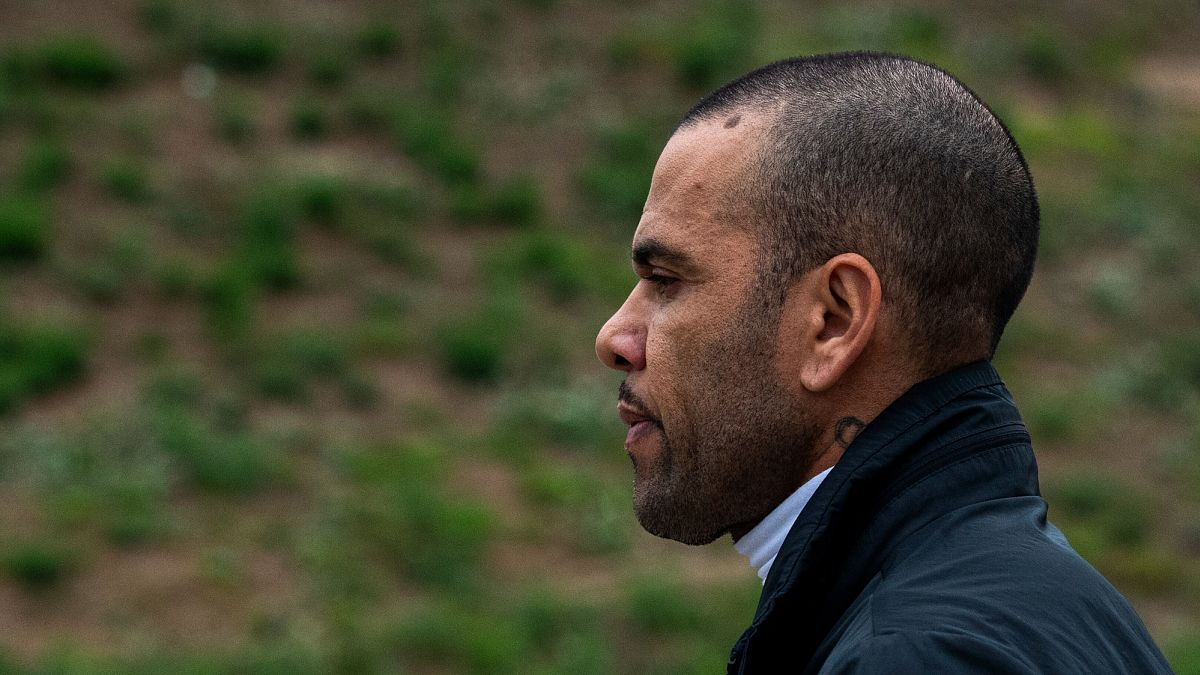Spain’s election dents Europe’s far right but much remains unanswered

The Spanish general election was expected to be a bellwether for the political direction of the European Union as a whole.
But Sunday’s inconclusive results offer more questions than answers, leaving Brussels scratching its head and wondering what’s next for the bloc’s fourth-largest member.
The final picture shows the conservative Partido Popular (PP), led by Alberto Núñez Feijóo, capturing the highest share of votes and parliamentary seats, closely followed by the socialists (PSOE) of incumbent prime minister Pedro Sánchez, who improved his 2019 performance in defiance of an acrimonious opposition campaign.
Feijóo’s unexpectedly disappointing performance (135 seats), and Sánchez’s surprising electoral resistance (122 seats) create a gridlock where no candidate is guaranteed a successful investiture, which requires a majority of 176 endorsements.
For Feijóo, the victory proved particularly bittersweet as his chances of becoming prime minister appear borderline chimerical: under the best possible scenario, his formation could count on the support of the 33 lawmakers from the far-right Vox and just two representatives from like-minded regional parties.
Meanwhile, Sánchez seems to be in a slightly less ominous position as he could gather the 31 votes of left-wing Sumar, its current partner in the ruling coalition, as well as the backing of Basque, Catalonian and Galician parties, which advocate various degrees of independentism from the central government and are poised to make serious demands in exchange of their “yeses.”
Adding to the drama is Junts, the party of Carles Puigdemont, the separatist leader still wanted by the Spanish justice over his role in the 2017 independence referendum in Catalonia, which has emerged as the ultimate kingmaker.
Experts and commentators did not wait long to raise the dreaded spectre of repeat elections as the likeliest denouement of the political crossroads.
“Even if the arithmetic in the Parliament is a bit complicated, Sánchez actually retains his options to rebuild his left-wing ruling coalition,” says Matías Pino, an analyst at Europe Elects, a poll aggregator that tracks elections in every European country.
“If Sánchez doesn’t succeed, the next option could be a re-run. If that were to happen, I don’t think the Partido Popular will have any chances of governing.”
A far-right setback
Although predicting what comes next is virtually impossible at this moment in time, a few clear-cut conclusions can be drawn from Spain’s nail-biting race.
On the one hand, it brings a great sense of relief to the Party of European Socialists (PES), which badly needed to hold its ground in Spain after a series of electoral misfortunes that threatened to diminish its political relevance.
On the other hand, it pours a bucket of cold water on the steady rise of far-right parties seen in recent months across Europe. The upward trend can be traced back to the popular contestation against vaccine mandates and lockdown restrictions during the COVID-19 pandemic, a discontent that further escalated with Russia’s invasion of Ukraine, the energy crisis, record-breaking inflation and new migration flows.
Far-right parties have exploited these factors to amplify their traditional narratives of national decline, economic anxiety and personal rancour, which they believe can push voters towards a hard-line, uncompromising type of leadership.
The strategy gradually paid off.
In September, Ulf Kristersson was named prime minister of Sweden after striking a confidence-and-supply with the nationalists Sweden Democrats. A few weeks later, Giorgia Meloni led her party Fratelli d’Italia, which has neo-fascist roots, to a resounding victory and formed the most hard-right Italian government since World War II. Then, in April, the populist Finns Party entered the conservative coalition of Petteri Orpo, moving Finland sharply away from the progressive years of Sanna Marin.
In parallel, the Freedom Party of Austria (FPÖ) and Alternative for Germany (AfD), both considered to be among the most radical groups in Europe’s far-right spectrum, began a firm advance in opinion polls, causing alarm among mainstream parties.
All the pieces seemed to be perfectly placed for Vox and its leader, Santiago Abascal, to join the victorious ranks of their colleagues.
But then, the tide turned.
Vox severely under-performed on Sunday, falling from 52 to 33 seats and shedding more than 600,000 votes compared to the 2019 elections. The debacle immediately dented Abascal’s potential as a junior partner for a Feijóo-led coalition as PP and Vox failed to amass the necessary 176 votes.
“Spanish society is slightly leaned towards the centre-left and is more progressive than other countries in Eastern, Southern and even Western Europe, where the far-right has made inroads,” Matías Pino said in an interview. “In principle, Spain, together with Ireland and Portugal, countries where the right has not grown that much, remains an exception (in Europe) as it limits Vox’s chances of coming into government.”
Analysts had seen the possible PP-Vox accord as the prelude to a wider collaboration between the European People’s Party (EPP) and the European Conservatives and Reformists (ECR) group ahead of the 2024 European elections, a possibility that has been fuelled by representatives on both sides.
It’s still unclear what effect Spain’s election will have on this untested idea: the country might end up being a rule-breaker rather than a deal-breaker.
Despite sharing the ECR label at the European level, Vox cannot be considered a conventional far-right party because its central theme is the conflict of the Spanish identity “with itself,” rather than the opposition against “the outsider,” says Camino Mortera-Martínez, head of the Brussels office at the Centre for European Reform (CER).
“What happened with Vox cannot be extrapolated to other European countries,” Mortera-Martinez told Euronews. “We cannot go and say: ‘Now that the far right has been stopped in Spain, we will see a reaction wave against the far right in other corners of Europe.’ Because here we’re talking about different kinds of far-right, which did not come from the same place and are not heading in the same direction.”
Presidency, interrupted
A protracted stalemate in Spain, a country with a GDP of €1.3 billion and a population of 47 million people, was always going to be a headache for Brussels, where proposed laws can be easily stalled by internal turmoil in big-sized member states.
But in the most unfortunate of timings, Spain happens to be holding the six-month rotating presidency of the EU Council, one of the bloc’s co-legislators. Although the position lacks executive powers as such, it grants the selected country a privileged role to set the agenda, host ministerial meetings, steer negotiations and draft compromise texts that can please everyone around the table.
Intent on making the occasion a showcase for his progressive policies, Sánchez refused to delay the Spanish turn when he called snap elections and insisted the presidency would go ahead according to the plan.
The big EU moment that Sánchez envisioned for his country looks now increasingly dim.
A caretaker government with a limited margin for decision-making guided by a prime minister fully absorbed with securing the votes of regional parties or, worse, mounting a campaign for repeat elections will no doubt struggle to keep its attention on Brussels at a crucial time when political impetus is urgently needed.
“What might make Brussels worry is the fact that Spain will be, indeed, distracted with its domestic politics during the Council’s rotating presidency,” Mortera-Martínez said.
“But I also believe that Spain has always proven to be very diligent thanks to its corps of civil servants who have been working really hard on the presidency and will ensure a certain degree of continuity in the face of a caretaker government.”
Time is of the essence. Before going into 2024 electoral mode, the EU institutions need to wrap up a to-do list of pending legislation, such as an overhaul of the electricity market, a world-first attempt to regulate artificial intelligence, a contentious bill to restore degraded habitats, and the hard-fought reform of the bloc’s fiscal rules.
None of these files are going to be easy to conclude due to their technical complexity, far-reaching implications and strong divergences between member states, making indispensable a reliable and dedicated direction at the helm of the EU Council.
“Brussels will miss the voice of one of the EU’s most important members in population and size, and also, let’s just say it, in terms of social progressivism: Spain is a country that has a lot to offer when it comes to migration, climate legislation, energy, relations with Latin America and other topics that are going to be key,” Mortera-Martínez said.
“Missing the Spanish voice will be a pity, I think, both for Brussels and Madrid.”
Source: Euro News















